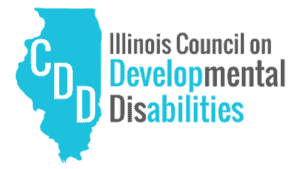The Partnership for Pre-K Improvement (PPI) was launched in 2016 with a vision to develop and sustain high-quality, equitable state pre-K systems. Throughout the 5-year project, we partnered with 3 states – Oregon, Tennessee, and Washington – to learn alongside state education leaders, advocates and researchers about how to systematically improve pre-K quality. Along the way, we focused in on infrastructure and the policies, data, and implementation supports pre-K programs need to succeed.
As a culmination of this project, we created a report to capture lessons learned and recommendations for state early learning agency leaders, researchers and advocates, along with a free toolkit to support pre-K systems improvement.
What We Learned
- Systems change is complex and occurs over a long period of time. Although we saw important improvements during the life of the project, substantial systems change is ongoing and occurs in cycles as states navigate governmental, political, leadership, and funding changes and challenges.
- Practice frameworks can both advance and impede systems change work. While focusing on core elements of teaching and learning seemed that it would yield the greatest impact on quality, states were most successful when focusing on just one or two elements at a time.
- Implementation science is useful at the systems level but does not sufficiently advance equity. While an implementation science framework was very helpful in driving improvements, equity does not automatically follow quality changes. Equity must instead be intentionally centered.
- At the systems level, coordination, alignment, and resource-sharing across programs are necessary when striving to improve pre-K statewide. Quality and equity can only improve when pre-K is seen as a legitimate part of the broader education system.
- Strong, trusting, and stable partnerships between advocates and researchers are key to success of improvement efforts. Specifically, relationships that are pre-existing, intentional in terms of allocating staff and resources, and provide opportunities to learn from each other, are all critical factors in building stable and successful partnerships.
Recommendations
For state systems leaders, advocates and research partners:
- Build meaningful partnerships among systems leaders, advocates, and researchers.
- Think beyond pre-K.
- Recognize that implementation and infrastructure are critical missing pieces of systems change.
- Use intentional strategies for increasing equity and elevating parent and teacher voices.
- Prioritize data infrastructure and your state’s ability to use data for improvement.
For national and local consultants and technical assistance providers:
- Center equity from the beginning of any project.
- Ensure that state and local voices drive systems improvement consultation and technical assistance.
- Throughout this work, keep in mind both long-term vision, and more pressing, daily challenges.
- Provide flexible resources and funding.

